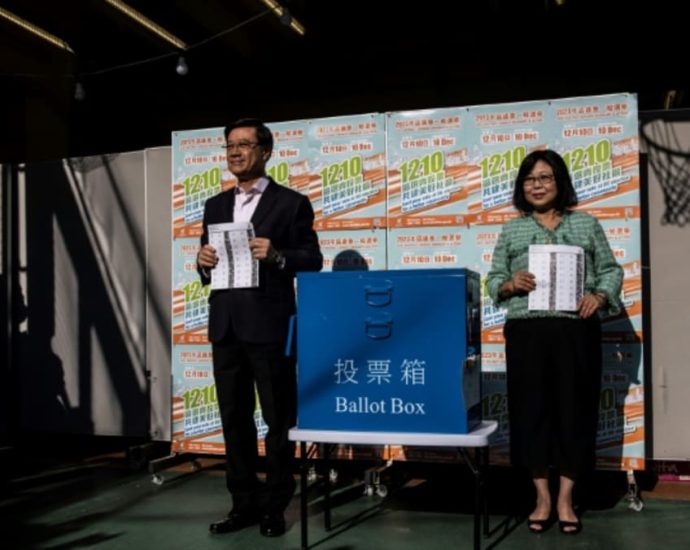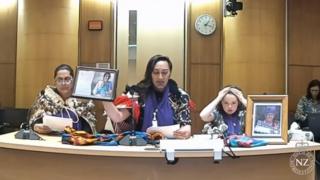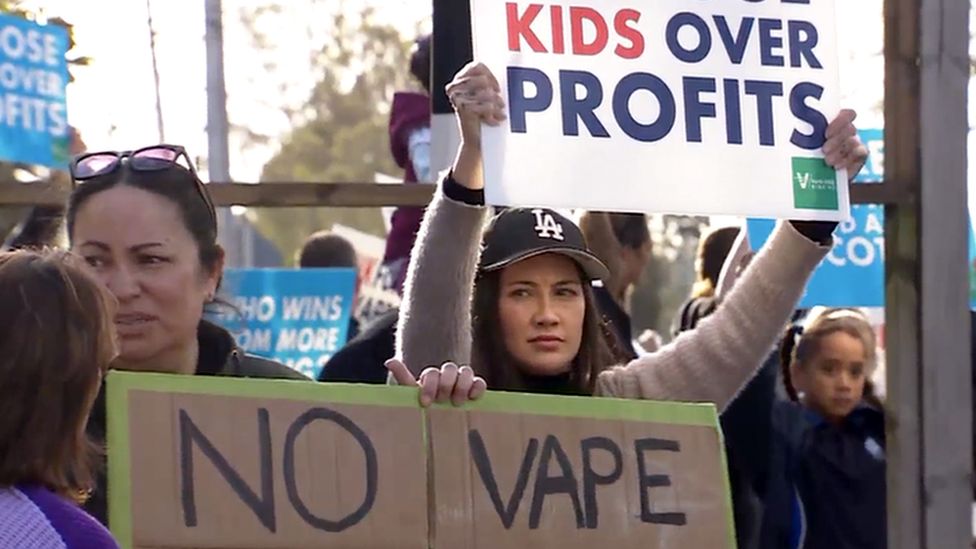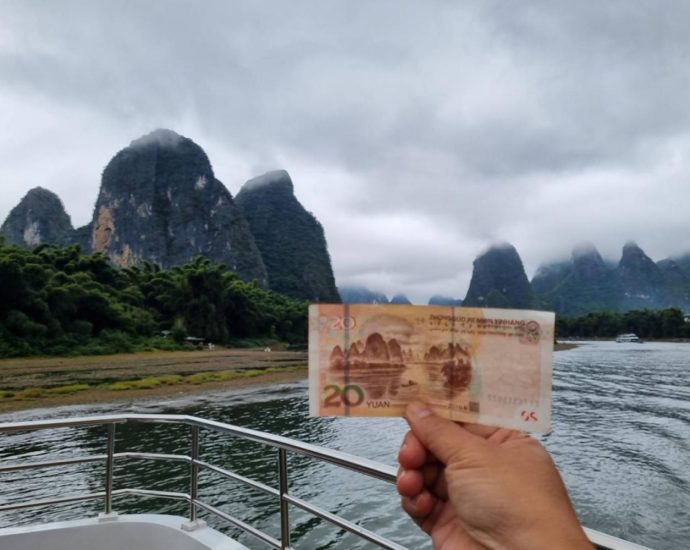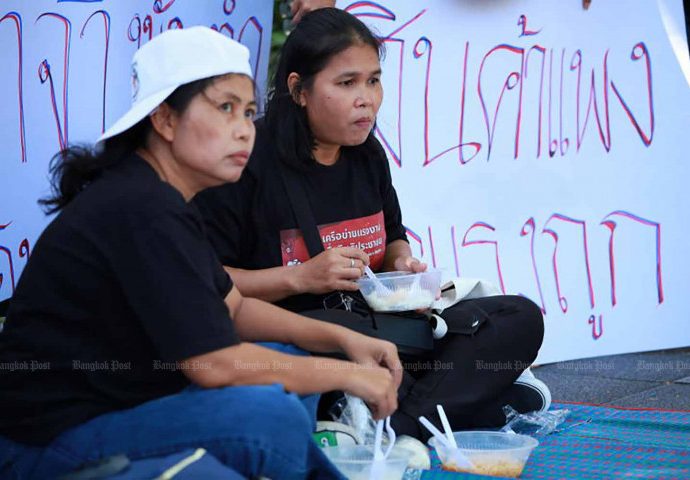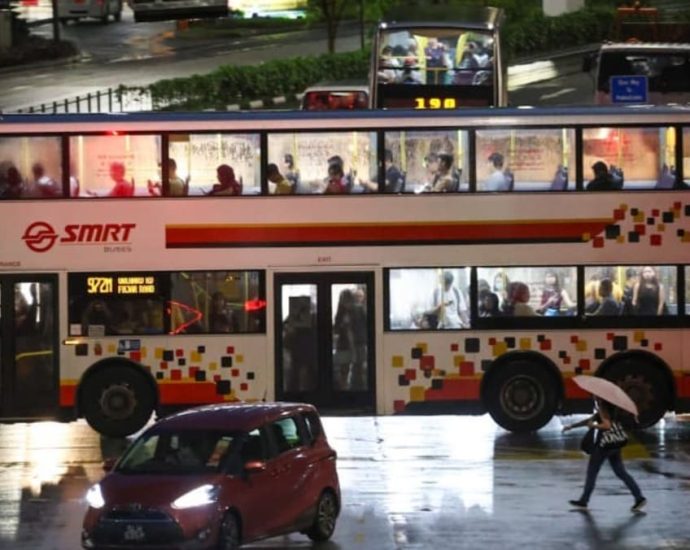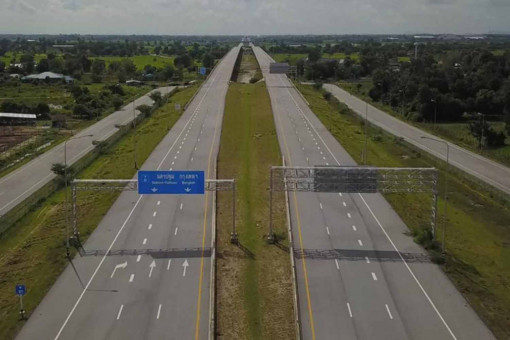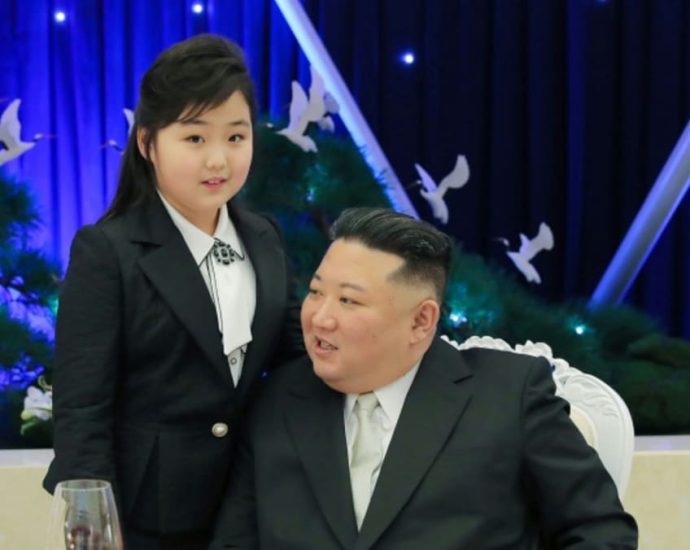Elite Afghan troops face return to Taliban after UK ‘betrayal’
 AFGHANISTAN MOI
AFGHANISTAN MOIAbout 200 members of Afghan special forces, trained and funded by the UK, face imminent deportation to their Taliban-controlled homeland, the BBC has learned.
The figures – gathered by a network of Afghan veterans – reveal the scale of what one former UK general calls a “betrayal” and a “disgrace”.
The soldiers fled to Pakistan, which now says it will expel Afghan refugees.
The UK says it has brought thousands of Afghans to safety.
Gen Sir Richard Barrons, who served the British Army in Afghanistan over 12 years, told BBC Newsnight that the failure of the UK to relocate these soldiers “is a disgrace, because it reflects that either we’re duplicitous as a nation or incompetent”.
“Neither are acceptable,” he said. “It is a betrayal, and the cost of that betrayal will be people who served with us will die or spend their lives in prison.”
In 2021, Prime Minister Boris Johnson had told Parliament that the service of these Afghan special forces had been “incredibly important”, adding the UK would do “whatever we can” to get “safe passage” for them.
The fears for the Afghan commandos come as it was revealed the government also rejected calls from senior British diplomatic and military figures to offer asylum to key Afghan civilian leaders whose lives were in danger.
The BBC has obtained a private letter sent in March 2022 to the Foreign Office, which called for urgent help to be given to a group of 32 former governors, prosecutors and officials who worked with the UK and US in Helmand Province during operations between 2006 and 2014.
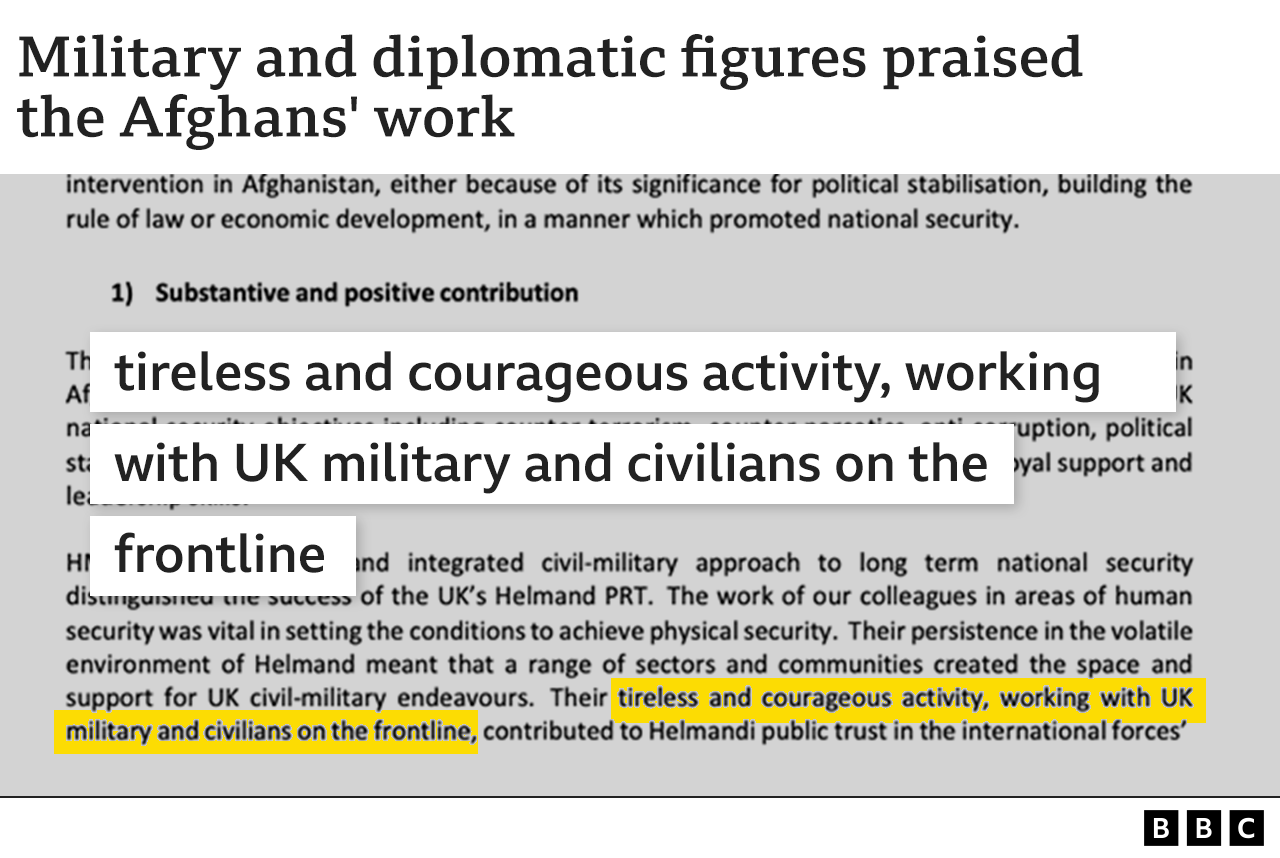
Like most of the 200 special forces soldiers, these 32 officials had applied to come to the UK through the Afghan Relocations and Assistance Programme (ARAP), intended for those employed by the UK government, or who “worked in Afghanistan alongside a UK government department, in partnership with or closely supporting it”.
Many of the officials and the soldiers were rejected, while others are still waiting for a decision after more than a year.
One of the officials, a former district governor, told the BBC his application for help through the scheme was refused two weeks ago, more than 20 months after he first applied.
Sir Richard, one of the private letter’s signatories, said: “We made a special commitment to these people, and we have not honoured it with an efficient, effective or even compassionate system.”
‘We fought shoulder-to-shoulder’
“Ali”, one of the Afghan special forces soldiers facing expulsion from Pakistan, told the BBC he felt abandoned and betrayed by the UK.
Speaking from a one-room safe house, he said of his work with the UK military: “We were together day and night. During training we slept under one tent, eating from the same dish.
“During operations we fought shoulder-to-shoulder with the British, as members of one family.”
Ali was a member of an elite unit known as Commando Force 333, set up in 2003 by the UK to counter Afghanistan’s growing problems with opium production.

Along with its sister unit, Afghan Territorial Force 444, they became known as “the Triples”. They quickly gained a reputation for effectiveness, honesty and courage.
“The Triples were at the front end of the UK-supported counter-terrorism operation,” said Gen Sir Richard Barrons. “They did the most dangerous, the most difficult, the most important missions, accompanied by British soldiers.”
In August 2021 as the Afghan state collapsed, one of the few units that held firm was CF333. Along with his colleagues, Ali headed to the Baron Hotel in the capital Kabul to protect British passport holders as they escaped the country.
But he was unable to board an evacuation flight himself, and eventually made it to Pakistan by land. Ali assumed his nearly two decades fighting alongside the British would mean he would soon be offered help. He was wrong.
“We never thought that heroes would be abandoned. We took all those risks. We were ready to help the international community, we respected freedom of speech and human life, then everything turned upside down. It is really disappointing,” he said.
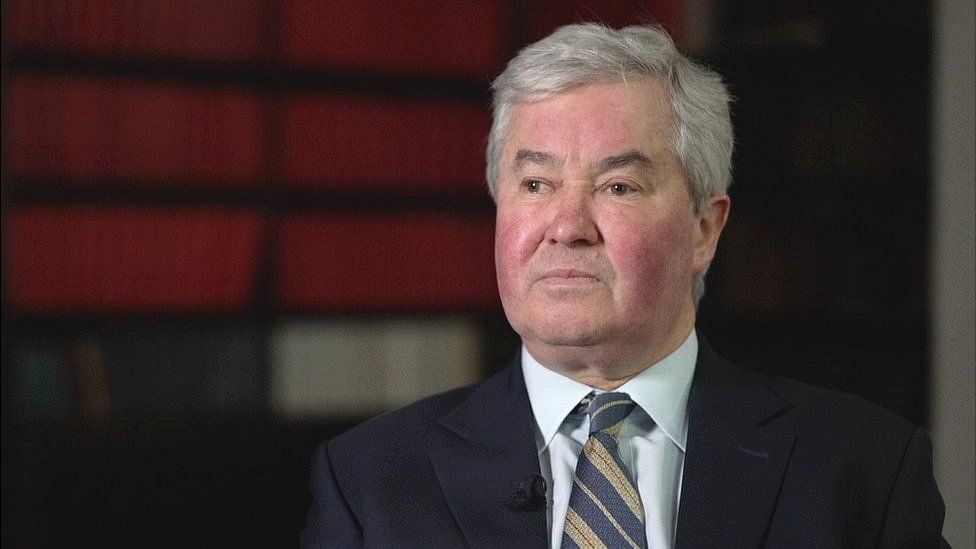
Now, as the Pakistani authorities crack down on undocumented Afghans, threatening to deport any they catch, Ali said: “I can’t work. I live inside this one room with my wife and five kids due to fear of the police. I’ve sealed myself at home for three months now.”
The estimated figures suggesting there are about 200 commandos like Ali facing deportation by the end of the year have been gathered through a secret network of former members of Afghan security forces and given to the BBC.
It is impossible to know for certain, but we have been told by senior British diplomatic sources that these figures are the best estimates yet.
It is not just former members of Afghan special forces who say they have been left in the cold, but also Afghan civilians who helped the UK.
‘I was betrayed’
Mohammad Fahim was one of the political faces of the front-line fight against the Taliban, as governor of Helmand’s Garmsir district – which was a key Taliban territory before 2001, and where Prince Harry served while in Afghanistan.
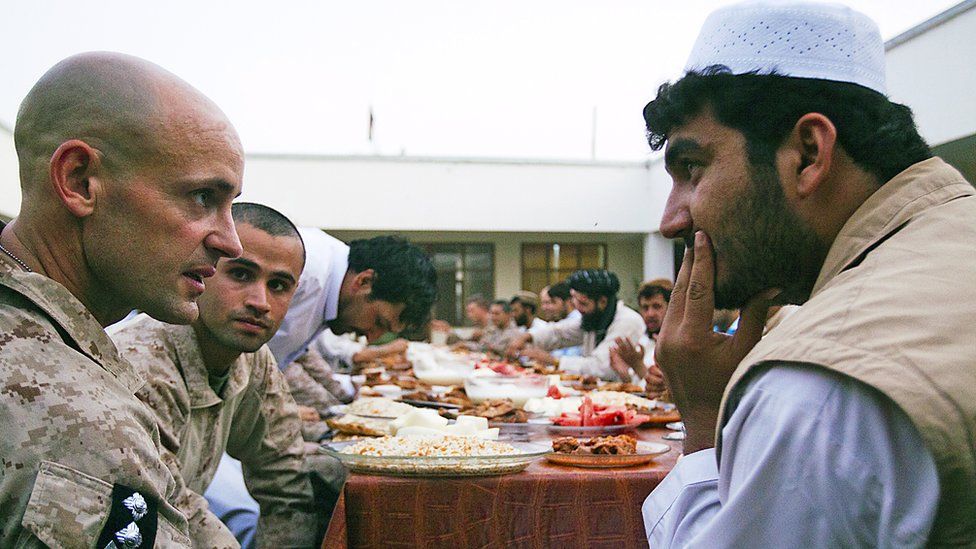
“We arrested a number of Taliban leaders when I was governor,” he said, speaking from a secret location. “They knew that we were fighting together with the international forces, so the threat to me is real.”
One time, he wrapped his arms around a would-be suicide bomber, preventing him from detonating his explosive vest and likely saving dozens of lives, including women and children.
Like Ali, Mr Fahim said he had bought into the idea of a shared mission with the British, even using the same phrase to describe the relationship: “We ran programmes shoulder-to-shoulder, with the shared aim of bringing security for the people who lived in Helmand, giving them a good life and making peace.”
That work put him in great danger. He said his brother and two cousins were murdered by the Taliban, and in 2018 he was beaten so badly he thought he would die.

And so, when it became clear the Taliban were returning to power, Mohammed Fahim was afraid of further reprisals.
“I feel scared just remembering it. I didn’t cry when my brother was killed, but I cried a lot that night,” he says, of the moment he realised the Taliban would regain control.
Mr Fahim said he assumed the years of close partnership with the British forces would mean he would be given sanctuary, but he was rejected by the ARAP scheme.
He now finds himself in hiding in a country neighbouring Afghanistan, his visa expired and his options dwindling.
“I was betrayed,” says Mr Fahim. “I never thought that I would be left alone like this.”
The refusal came despite the support of British military and diplomatic figures who had worked with him.
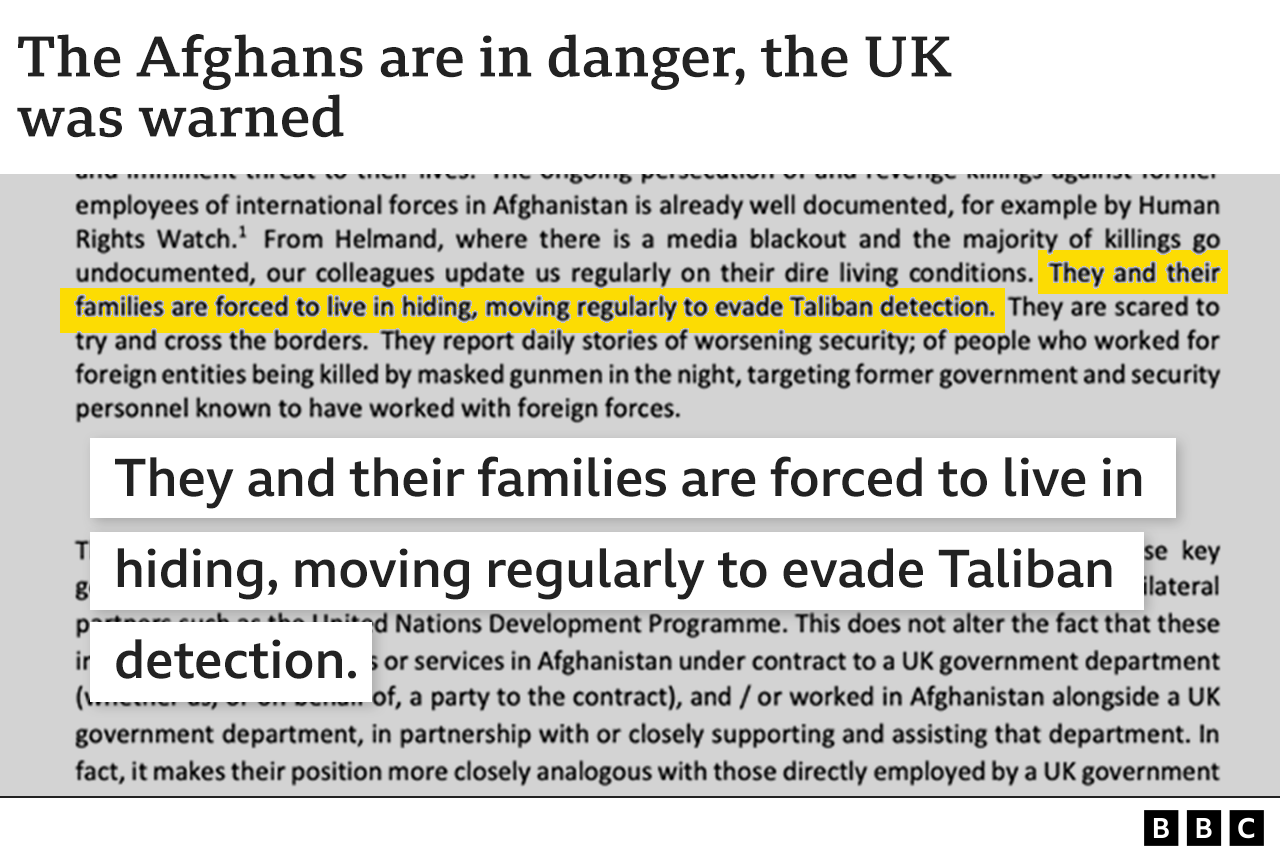
Gen Sir Richard Barrons said: “I’m personally ashamed because I feel very deeply that we made an obligation to them and we have not fulfilled it.
“It’s beyond absurd to say they don’t qualify and that they should be left behind to a fate at the hands of the Taliban.”
He said if a governor who worked with UK forces does not qualify, “it makes you wonder whether anybody ever satisfies the rubric of this particular scheme”.
‘Completely unjust’
Ali was also rejected by ARAP, which is run by the Ministry of Defence. He was told he did not qualify as someone directly employed by the UK or working with a UK government department.
Lt Gen Abdul Hadi Khalid, the first commanding officer of CF333 who has been resettled in the US, told the BBC that the decision was “completely unjust”. He said his men had been directly paid by the British.
“All equipment, clothing, food, all expenditure, including the pay, everything came from the UK. The donor for this mission was the British government. It is crystal clear,” he said.
“I didn’t expect that from the British government… They promised a lot, but when they forget it, what can I call it? It is dishonesty.”
Lt Gen Khalid said the treatment of the Triples will be a black stain on the reputation of the West. “I’m 100% sure that when other nations, other progressive forces, see Afghanistan, when they look at Afghan people, Afghan miseries, how can they trust the West?”
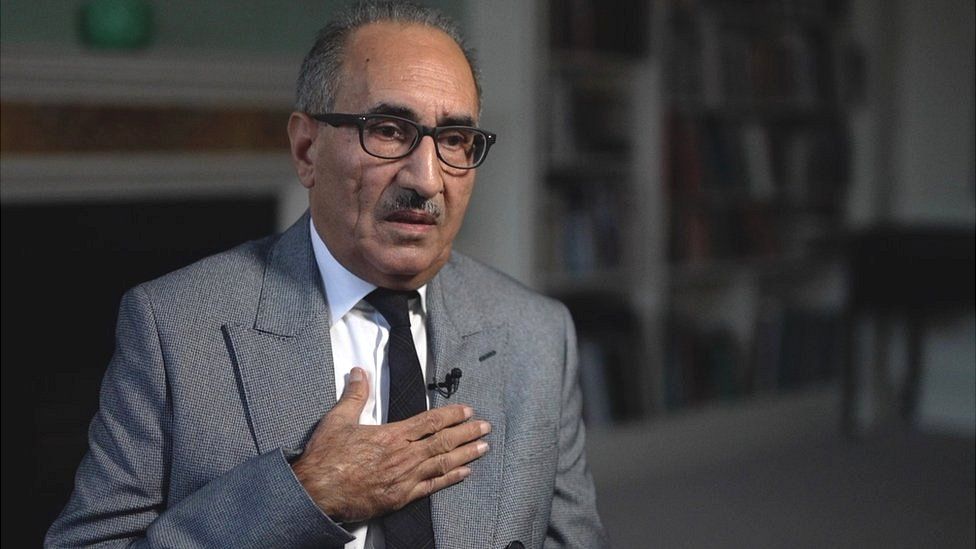
The Ministry of Defence said the UK has made an “ambitions and generous commitment” to help eligible people in Afghanistan.
“So far, we have brought around 24,600 people to safety, including thousands of people eligible for our Afghan schemes,” a spokesman said.
“Each ARAP application is assessed individually and in accordance with published policy, and we do not automatically make a decision on eligibility based on a job role.”
Despite everything, Ali and Mr Fahim said they were proud of the work they have done with UK forces.
“I will not forget how we looked after one another in remote villages,” said Ali. He recalled how a commander in the UK and US forces had put his own blanket around Ali’s shoulders during the cold. “It is a sweet memory for me, but it makes what happened later so disappointing.”
Additional reporting by Hafizullah Maroof, BBC Afghan service, and Maria Polachowska, BBC Newsnight
Hong Kong ‘patriots only’ elections see lowest-ever turnout
Candidates were also required to seek nominations from three government-appointed committees, which effectively shut out all pro-democracy parties. Over 70 per cent of the candidates picked to run for the election were themselves members of the nominating committees. Police also acted swiftly to clamp down on any sign of dissentContinue Reading
New Zealand smoking ban: MÄori mourn loss of hard-won smoking reform
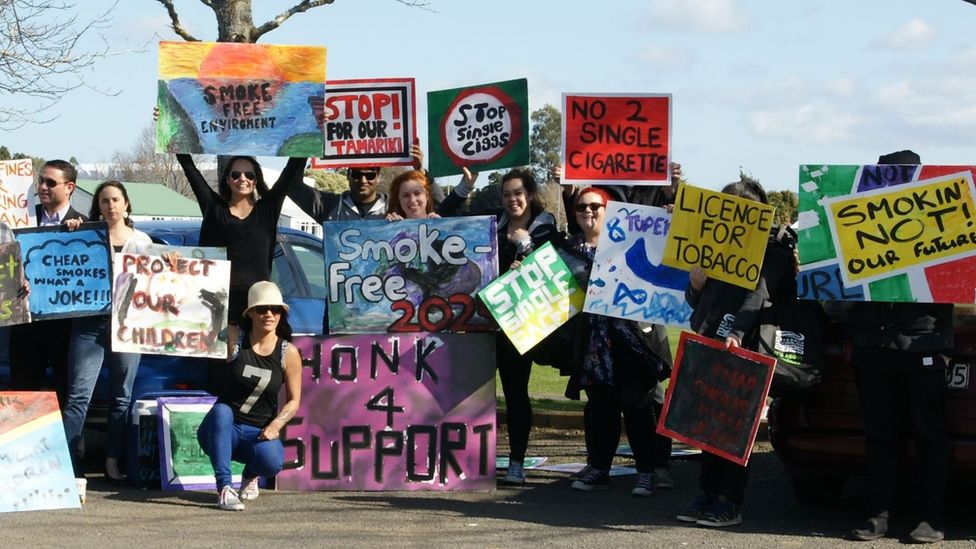 Hāpai Te Hauora
Hāpai Te Hauora When New Zealand’s new government announced it was scrapping the country’s world-leading tobacco laws, it came as a particularly hard blow to the Maori people.
With the indigenous community being the country’s heaviest smokers, its leaders had fought for reforms for years.
The country’s model was the first to spell a complete end to smoking – and so was hailed by health advocates globally.
From 2024, the laws would have cut nicotine levels in cigarettes to non-addictive levels, eliminated 90% of retailers allowed to sell tobacco, and created “smoke-free” generations of citizens by banning cigarette sales to anyone born after 2008. But with the measures now abandoned, the Maori will suffer the most, advocates say.
Last year, Teresa Butler and her six-year-old daughter sat in front of a room full of politicians, begging them to enact the laws.
Dressed in a traditional feathered cloak, her voice quavered as she thrust a photo of her mother at the committee. She presented the death certificate.
Cause of death: Emphysema, the result of more than 30 years of tobacco smoking.
Teresa had her first cigarette aged eight. She recalls running down to the shops in Christchurch, with five dollars in hand and a note from her mum for a packet of smokes.
She only kicked the habit when she fell pregnant.
“I wanted a healthy baby to continue a healthy strong whakapapa [family line],” she said.
She has spent the last seven years of her life as an anti-smoking counsellor, going into Māori neighbourhoods to try and wean people off the deadly addiction.
These days, only 8% of New Zealand’s adult population are daily smokers, but the number is more than double that- 19.9% – among Māori. It is even higher among Māori women.
It takes a toll, not only on health but finances.
A packet of cigarettes in New Zealand costs NZ$40 (£19; $24) on average. Chain smokers can inhale a pack a day.
“It’s stress, it’s a lack of education, they have children, they’re single mums,” says Ms Butler, relaying a typical encounter.
“I go into a home and I can clearly see her kids don’t have any nappies on. There’s no food in the cupboard. And I’m saying to her: ‘It’s winter time, you’ve got no power. Why don’t you have any money?’ And she’ll tell me: “Because I’ve just spent the last $30 on smokes.”
Smokers tell her they want to kick the habit but feel trapped.
“They say to me: ‘Look, it’s too easy to access this Teresa. I can wake up at one o’clock in the morning, have anxiety, be depressed and go down to the local shop, the 24-hour petrol station and purchase cigarettes.’ It’s just a quick fix, just like alcohol.”
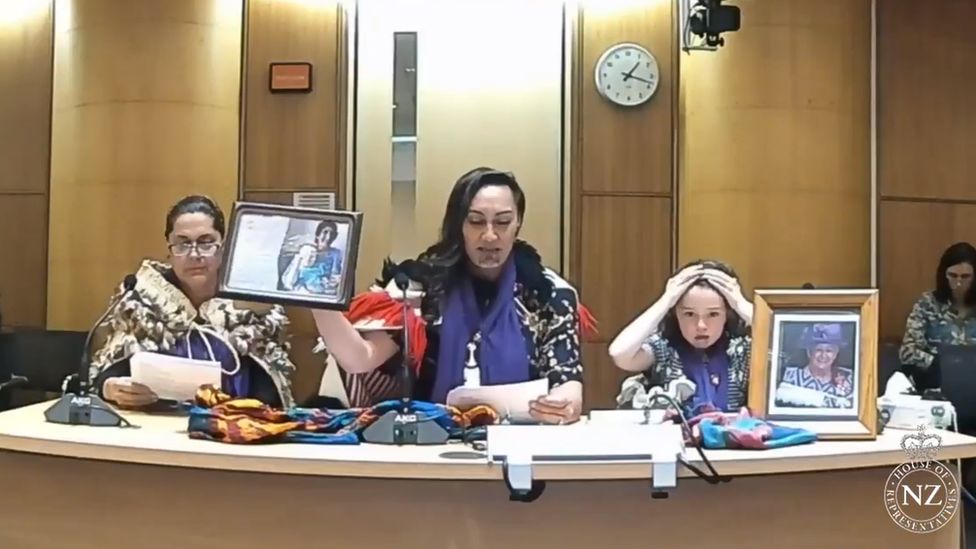
Targeting tobacco, not people
The proposed policies – especially denicotisation and the so-called Smokefree generation – have never been implemented anywhere.
But public health researchers considered New Zealand – a high-income country of just over five million people – an ideal setting to try and achieve tobacco “endgame”.
What was new here was the focus: targeting the industry, not the individual.
Almost all smokers will tell you that they want to stop, researchers say. The problem, for many, is individual capability and access to resources.
Like other countries, New Zealand had already had anti-smoking measures in place for years: excise increases on cigarettes, a Quitline phone service, and mass media campaigns carrying health warnings.
But while these helped drive down the smoking rate for European and Asian populations, the rate among Māori and Pasifika groups remained stubbornly high at around 20%.
“The problem we realised was because it was reliant on individuals too much,” says Andrew Waa, an associate professor of public health at the University of Otago who is Māori and who has led most of the tobacco control studies in the country.
He says these measures targeted “more superficial aspects” of tobacco control – for example focusing on helping people quit – instead of targeting fundamental causes for why people take up smoking and continue to smoke – like the widespread availability of cigarettes, and the tobacco industry’s role.
And the resources needed to quit aren’t equally distributed across New Zealand, researchers say. There remain significant hurdles.
There are many drivers behind “health inequity” – but the underlying reasons are rooted in New Zealand’s colonial history. White Europeans took over the Pacific nation in the 18th century.
“Colonisation is an underlying driver of ethnic inequalities in smoking behaviour,” Associate Prof Waa and other researchers wrote in the Tobacco Control journal last year.
They noted Indigenous’ people’s experience of generational theft, racism and cyclical poverty were the “basic causes” affecting access to income and housing and overall health.
So when the Smokefree measures were introduced in 2021, the resounding praise from public health circles was rooted in the view that such policies would vastly improve health equity.
And in a clear example of best practice, where policy is enacted not “on” Māori but “by” Māori, the laws were also the direct extension of a political push by Maori politicians in the mid-2000s, when one MP first suggested an end to tobacco sales.
In 2010, Māori legislators set up the country’s first large-scale inquiry into tobacco’s harm on Māori and other communities nationally- the parliament inquiry heard from a range of groups across the country.
The results of this inquiry led to the New Zealand government in 2011 setting one of the most daring public health targets in the world: a Smokefree country by 2025, with smoking prevalence under 5%.
However the National government at the time did little by way of policy to achieve it, researchers say.
It was only Jacinda Ardern’s government, a decade later, who decided to launch a package of radical reforms to get the country and in particular its Maori people across the finish line.
She appointed Ayesha Verrall, a doctor and epidemiologist, as health minister – who prioritised Māori community consultation in shaping legislation. The government further dedicated $14m to community health programmes, and set up Te Aka Whai Ora, the Maori Health Authority, an independent government body that sets Māori health policy and tailors the country’s health system delivery to Indigenous people.
The scientific modelling backed up the Smokefree reforms. Simulation studies conducted by Associate Prof Waa and other researchers concluded the measures would see the smoking rate for Māori drop to 7.8% by 2025, compared to a 2040 timeframe under previous smoking policy.
More profoundly, the mortality gap for Māori women would be shortened 23%, for Māori men nearly 10%.
“It is unlikely that any other feasible health intervention would reduce ethnic inequalities in mortality by as much,” the researchers wrote.
But New Zealanders in October voted in a change of government.
The conservative coalition then said it intended to repeal the health laws to fund tax cuts – a policy blindside given the leading National party never once mentioned the Smokefree laws during campaigning. The new government also plans to dismantle the Māori Health Authority.
“We thought that once the legislation was passed last year it was a done deal. So we’re really confused as to how and why this can happen,” says a furious Ms Butler.
“It’s heartbreaking because this is life changing, life-saving legislation, particularly for Māori,” she says.
Currently about 5,000 people die each year in New Zealand from smoking and smoking-related problems – nearly a 1,000 of whom are Māori, according to a New Zealand Medicine Journal study.
National has said they feared the smoking crackdown would fuel an already existing black market for tobacco in New Zealand and increase crime – arguments first used by tobacco companies opposing the laws.
Prime Minister Christopher Luxon argued that reducing the number of retailers would turn the shops left selling tobacco into a “massive magnet for crime”. Meanwhile, Deputy Prime Minister Winston Peters has argued the smoking ban is a violation of people’s rights and free choice.
The finance minister also revealed that the “about a billion dollars” in tax raised from cigarette sales would go directly into funding “tax relief for working Kiwis”. It has blamed negotiations with Act and New Zealand First, two right-wing, populist minor parties it needed to form government, for forcing their hand.
The New Zealand Health Minister’s office admitted to the BBC the repeal of Smokefree laws were “not a National Party policy – but that’s the nature of a negotiation.”
But previous government modelling had shown that Smokefree would save the country’s healthcare system $1.4bn over two decades.
Dr Shane Reti, the new Health Minister, has faced calls from the nation’s practitioners to step down from his medical registrations – given his abandonment of the public health policy.
His office told the BBC the government “remained committed to reducing smoking rates” but did not answer questions on how it would achieve that now with the Smokefree policies scrapped.
Critics have also raised questions about the tobacco industry’s influence in the policy reversal. New Zealand had been viewed as the dangerous ‘endgame’ precedent for Big Tobacco, Prof Waa says.
Since New Zealand announced the laws in 2021, they had inspired other countries; the UK this year also announced ambitions for a smokefree generation.
The National party declined to answer the BBC’s questions about political funding from tobacco companies.
Meanwhile, health activists and Māori leaders are fighting again to keep their hard-won reform. More than 20,000 New Zealanders signed a petition last week calling for the laws to stay.
“We simply cannot afford to go backwards, while our whānau continue to die at the hands of this product,” read the Hāpai Te Hauora petition.
Thousands also protested on the streets in capital city protests around the country this week, criticising the incoming government for its “anti-Māori” policies with many singling out the dismantling of Smokefree laws.
But there are murmurings and concerns that the government, with a majority in parliament, could scrap the laws by Christmas.
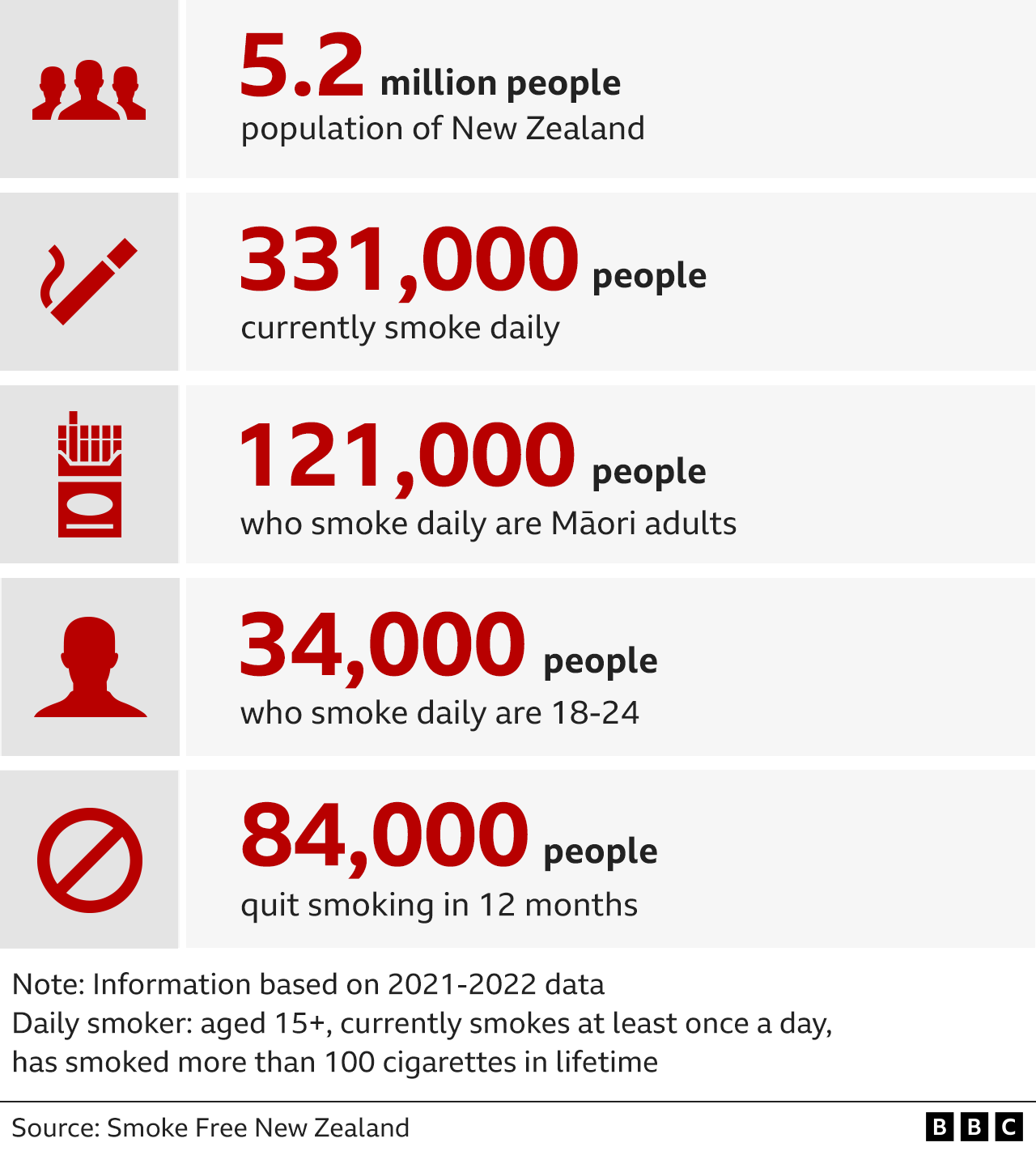
-
-
9 December 2021

-
Bridging âevident gender gapâ in leadership: Experts in Singapore urge women to dig into life purpose, step up and be âshamelessâ

The motherhood penalty, said Ang, refers to women experiencing slower career growth or earning lower salaries due to biases related to motherhood.
“One of the most common barriers that women still face in the workplace today is finding themselves having to choose between their career and family.
“It’s an experience I personally relate to. Many questions I receive … revolve around how I manage to balance two equally demanding roles: Being a mother of three and a woman in a leadership position within a hyper-growth industry.
“Even though the workplace has progressed since, stubborn gender biases continue to exist,” she said.
Her colleague at LinkedIn, Frank Koo, agreed.
“Women, who tend to shoulder more family care-giving responsibilities, may struggle with the fear of being deemed a ‘maternity risk’ (the risk of being overlooked for career growth opportunities due to potential pregnancy) by companies and passed on for promotional opportunities at work,” said the company’s Head of Asia for Learning and Talent Solutions.
He also observed that “when women are decisive, they may be labelled as abrasive or bossy”.
“However, if a man exhibits similar behaviours, they are likely to be seen as strong-minded or determined.”
These are “some of the biggest barriers women face” in the workplace today and these are “deeply entrenched systemic biases by organisations, as well as unconscious biases and inherent prejudices by individuals”, said Koo.
These barriers show up in the numbers.
Koo pointed out that in research done by LinkedIn in 2022, men in Singapore are 42 per cent more likely than women to be promoted internally into leadership positions, with 64 per cent of leadership roles held by men.
“Additionally, we found that although women may rise to their first leadership position faster than their male colleagues, the window of opportunity – the period of time in which an employee may capture opportunities to be promoted to leadership positions – is limited between the two genders.
“In Singapore, this window is nine years for women and 10 years for men,” he said.
Roshni Mahtani Cheung, CEO and founder of TheAsianParent, calls this situation “frustrating”.
“Women still need to prove themselves more than is required from their male counterparts … Opportunities don’t open as much for us because while we think we’re getting closer and closer to breaking the glass ceiling for women in leadership, we still do face many barriers that keep us from getting close enough to tap that glass,” said Cheung, who sits on the board of the Singapore Repertory Theatre.
One barrier, she said, is gender bias.
“Men, despite how women work just as hard and smart, get promoted faster and receive more pay.”
LACK OF CONFIDENCE OR “OVER-CONFIDENCE”?
Cheung also brought up something else – another recurring theme we noticed in our conversations with women leaders – a lack of confidence.
There is a “confidence gap that overshadows women’s competence”, she said.
“Studies have shown that it’s women’s low self-confidence that keeps them from progressing, while conversely, men’s high self-esteem – despite them being on the same level of competence as women – bolsters their success,” she added.
Cheung recently had a conversation about gender parity at work with Minister for Communications and Information Josephine Teo and President of United Women Singapore Georgette Tan Adamopoulos, as part of LinkedIn’s At the Table video series.
Speaking to CNA Women, Tan Adamopoulos reinforced that for most women, competency was not a barrier to their progress.
“Rather than specific skills or experiences, it’s about building their confidence to step up, take on different roles and demand a seat at the table,” said Tan, who has been a board member at BoardAgender for seven years.
“Part of the reason for the lack of confidence is because we, as women, do not talk about our accomplishments. By actively driving such conversations, we give other women, especially younger women, something to aspire to,” she said.
However, the CEO of Stewardship Asia Centre, which led the recent summit at Shangri-La Hotel, disagreed with this view.
When asked if a lack of confidence was an issue, Rajeev Peshawaria said: “Absolutely not.
“The lack of confidence is both a man’s and a woman’s issue … I think, ‘What if I lose it? What if I don’t get it?’. That’s lack of confidence,” he said.
Peshawaria, who has held senior leadership positions in top corporations like American Express, The Coca-Cola Company and Morgan Stanley, pressed that the main issue was purpose – and the set of values that would come with it.
“I’ve studied leadership for 30 years now and written several books on it. I have found that women actually make better leaders than men but there’s a conditionality: They must want to,” he said.
“Women are made to be better leaders. Leadership requires tough love – you need to be tough when you have to be tough and you need to give love when it is needed, and you need to do both at the same time – women are much better than men at doing that.
“(Men) can either do tough or they can do love. They are just not capable (of doing both),” Peshawaria added.
Ganu spoke of a recent study in which an ad was posted for an “impossible-to-fulfil role”. The results were stunning – and startling.
A Chinese model for modernisation

China is promoting Guanxi Zhuang Autonomous Region, which lies on the border with Vietnam, as a gateway to the mainland for businesses and tourists from the Asean region.
Guanxi’s location in southern China makes it well-suited to become a gateway to Southeast Asia. The region is connected to Vietnam by land, sea and air, and it is served by over 30 international cargo and passenger services which depart from its three international airports and three deep-sea ports.
Local authorities are hoping these facilities will attract more businesses and tourists from Southeast Asia to visit the region, and vice versa, according to Dong Changting, the deputy director of External Publicity and Exchange Department of Guangxi Zhuang Automomous Region.
Guangxi is also known for having one of the highest numbers of education institutions which provide Thai language courses to Chinese students.
A growing number of Chinese students are interested in taking up Thai lessons in Guangxi prior to leaving for Thailand. Similarly, a source said, an increasing number of Thais are also coming to Guangxi to learn Chinese.
The Chinese government is keen to facilitate language exchanges as it expands its reach in the region through its Belt and Road Initiative (BRI), the source said, noting such exchanges also boost the nation’s soft power capacity, which it needs to maintain its influence over its allies.
BRI is a major infrastructure push launched by the Chinese government, which Beijing envisions would ultimately link all major trade routes across Asia, Europe and Africa.
Prime location
Deputy Prime Minister and Commerce Minister, Phumtham Wechayachai, has said Guangxi’s location and proximity to Southeast Asia makes it an ideal gateway for Thai agricultural exports to China, such as jasmine rice, durian, grapefruit and longans.
The reason, he said, is because the autonomous region is well equipped to handle land and marine cargo shipments, allowing Thai products to reach the markets faster than if they had gone through a different gateway.
Recently, authorities in Guangxi Zhuang Autonomous Region hosted a China-Asean expo to boost cooperation between Chinese businesses and their Asean counterparts, in which they showcased the region’s rapid development and modernisation.
The trip was organised by the Propaganda Department of the Guangxi Zhuang Autonomous Region Committee of the Communist Party of China and the Guangxi Branch of China News Service.
Known for Guilin
Before Guangxi became a modern and popular trade hub, it was first known for its natural attractions, chief among which is Guilin, which is world-famous for its beguiling limestone karst formations.
The landscape around Guiling is so renowned that it is featured on the 20-yuan banknote, said Ma Tieqiao, chairman of Guilin Junda Transportation Company, which offers leisure cruises along the Li Jiang River.
In the past, he said, most tourists would have to get on bamboo rafts, which are only big enough for about three people, or risk getting crammed into a small boat for larger groups.
As the number of tourists continue to grow, in 1985 the Guilin Sightseeing Shipping Co was founded to provide improved services for local and international visitors.
The move proved to be successful and now scores of leisure boats cruise along the Li Jiang River everyday, he said.
Home to high-tech industry
Now, Guilin is increasingly becoming known as a hub for high-tech industries.
The rapid transformation started in 1988, when Guilin High-Tech Industrial Development Zone was established. It was upgraded into a high-tech special development zone in 1991, becoming the first national-level high-tech zone across China’s five autonomous regions.
In just 30 years, Guilin has become one of the leaders in scientific innovation and industrial development.
One example of a successful company based in the region is Guangxi Guilin Zhishen Information Technology Company, which produces anti-shake tripods for cameras and other equipment for digital photography, as well as mobile phones.
The company has won several awards such as the iF Design Award, the Red Dot Award and the Excellent Design Award, according to the company.
In addition, Guigang, which is located in eastern Guangxi, has been designated as a hub for electric vehicle (EV) manufacturers. The city is home to more than 100 EV-related businesses, including e-bike producers, machine components and vehicle parts manufacturers.
Having an EV production base in Guigang will give China more opportunities to export its EVs to countries in Southeast Asia, said a representative of Guangxi Luyuan Electric Vehicle Company, which manufactures and distributes electric motorbikes and e-bicycles.
He said as the electric vehicle industry has become more popular in the world, the company expects to expand its reach to many countries in Southeast Asia.
EVs will be a solution for the green energy ecosystem, he said.

The Sun and Moon Pagodas are illuminated at night in the Fir Lake, one of popular tourism sites in Guilin. Photos by Penchan Charoensuthipan
Wages hike call irks panel
PM has no right to intervene, it says

The Ministry of Labour on Sunday agreed to seek talks with the tripartite committee which approved a new minimum daily wage, after Prime Minister Srettha Thavisin said the panel’s decision on Friday approving an increase of 2 to 16 baht was too meagre.
The committee, which comprises the ministry, employers and employees and is also known as the wage board, however, insisted its decision is final and the PM has no legal authority to interfere with it.
Following the PM’s remark on Saturday, the committee had better hold talks as to whether its resolution on new wage rates could still be revised as encouraged by Mr Srettha, said Pairoj Chotikasathien, permanent secretary for labour.
Mr Pairoj said the decision was based on wage rates proposed by the wage sub-committee in each province and later screened by a central committee which proposes the new rates to the tripartite committee.
He was discussing with Labour Minister Phiphat Ratchakitprakarn whether the ministry should forward the wage committee’s resolution to cabinet as initially planned.
The PM might not be aware that the economic situation in each province is taken into consideration when striking the rate, said Atthayuth Leeyavanich, a member of the wage committee who represents employers.
The PM criticised the 2-baht rise in the daily minimum wage in Yala, Narathiwat and Pattani.
However, he may not have known that Pattani’s provincial wage sub-committee decided not to ask for a hike, while the provincial sub-committee in Yala and Narathiwat both proposed to raise 2 baht, said Mr Atthayuth.
The main wage board had then decided to raise the minimum wage for Pattani as well, as these three provinces appear to have a similar economic situation, he said. “The board’s resolution is final and it only needs to be forwarded to the cabinet as a way of formally informing it of its decision, not to seek any further approval,” he said.
If Mr Pairoj calls a meeting with the board to discuss about Mr Srettha’s remark, Mr Atthayuth said, he believed members of the board who represent employers would refuse to attend. However, if the PM really wants to meet the wage board, he said, he would be happy to offer an explanation to the PM to improve his understanding about the criteria.
Mr Atthayuth said members of the wage committee were grateful that Mr Phiphat told them at Friday’s meeting they could decide independently on the new wage rates. “The PM might say whatever he believes is right, but he has no authority to suspend the wage committee’s resolution which was reached lawfully,” said Suchart Chuenchoochit, vice president of the Federation of Thai Industries (FTI).
In the event Friday’s decision really does have to be revised, the process will have to start all over again with the provincial wage sub-committee proposing a new wage rate, which should take another two to three months to finish, he said.
Veerasuk Kaewboonpan, a member of the tripartite committee who represents employers, said that while he might agree that the wage rates should be higher, boosting them across the board to 400 baht as the government wishes is simply impossible at the moment.
“The Labour Protection Act says clearly that the tripartite wage committee holds the authority to decide independently on wage rates,” he said. As such, he urged both the tripartite committee and the government to meet half way and find common ground about the new wage hikes, saying if the cabinet rejects the committee’s resolution, a new problem will arise.
Only about 500,000 unskilled Thai workers will likely benefit from new minimum wage rises, as the other 5 million-plus workers paid the minimum wage are migrant workers, he said. And since every wage hike normally drives prices of consumer products up, all Thais inevitably will be affected by higher living costs, he said.
The Big Read: The romance and practical appeal of bus rides, and the special place they hold in Singaporeans’ hearts
In the process, some bus services may “inevitably offer redundancy” to the MRT system for at least part of their routes, said Associate Professor Walter Theseira from the Singapore University of Social Sciences (SUSS). “However, the main aim of these bus services should be to connect routes poorly served byContinue Reading
Part of M81 to open over New Year holiday period
PUBLISHED : 11 Dec 2023 at 05:05

A section of a new motorway that will link Nonthaburi’s Bang Yai district with Kanchanaburi province will be opened to motorists over the New Year holiday period, says Transport Minister Suriya Jungrungreangkit.
He accompanied Prime Minister Srettha Thavisin to Kanchanaburi on Saturday, where they met officials to discuss development in the province.
Between Dec 28 and Jan 3, authorities will allow motorists to travel free-of-charge along a 51-kilometre section of the M81, from tambon Wangtaku in Nakhon Pathom’s Muang district to tambon Nongkhao in Kanchanaburi’s Tha Muang district.
The decision was made to help ease traffic congestion along Highway 323, the main road linking Nakhon Pathom and Kanchanaburi, which is routinely congested over the holiday period, and provide a faster route for trucks heading from Bangkok to the west, he said.
Mr Suriya said the prime minister has instructed state agencies to expedite construction on the unfinished sections, so the M81 can be fully opened for a trial period next year. The motorway will begin commercial operation some time in 2025.
The M81, short for Motorway No 81, will cost about 61 billion baht. It is among the projects which the government decided to fast-track back in 2016 to improve the nation’s infrastructure.
Once the highway is fully opened, motorists heading to the west will be able to take the M81, instead of going along highways 4, 323 and 338, cutting travel time and fuel costs.
Other issues raised at Saturday’s meeting were land title distribution, water resource management, ramping up tourism promotions and agricultural development, and the possibility of creating a special economic zone in Kanchanaburi, which lies on the border with Myanmar.
The province can be a key logistic node in the Central-Western Economic Corridor (CWEC) linking Bangkok and Chon Buri to Dawei in Myanmar, he added.
Commentary: North Korea electoral reform prompts speculation of Kim Jong Un grooming his daughter for succession
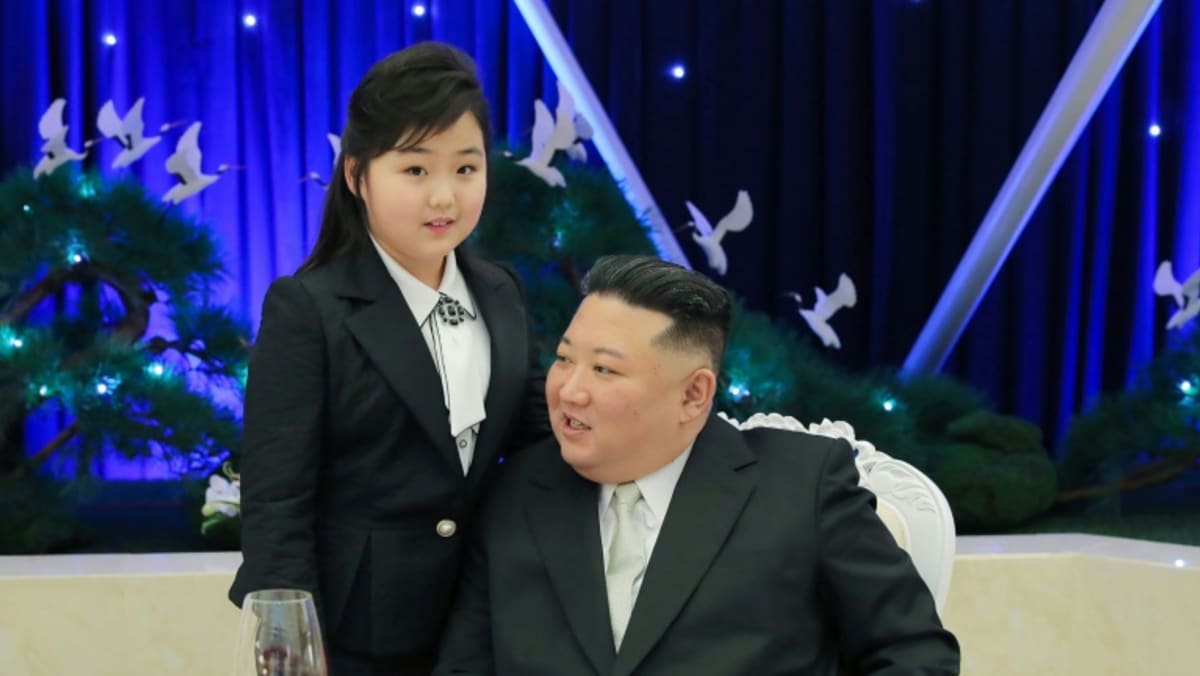
KIM JONG IL’S ASCENT TO POWER
The first leader in the Kim dynasty, Kim Il Sung, began to groom his son Kim Jong Il for power in the early 1970s when he was in his early 30s. He was named number two in the Korean Workers’ Party (KWP) in the party in September 1973 and elected to the political bureau of the party’s central committee in February 1974.
Kim Jong Il spent the next few years consolidating his political power and in October 1980, at the 6th Congress of the KWP, he was officially designated as successor to his father.
In September 1991 Kim Jong Il was named as supreme commander of the Korean People’s Army, while in 1992, Kim Il Sung publicly stated that his son was in charge of all internal affairs in the Democratic People’s Republic. Kim Jong Il made his first public speech in 1992.
So by 1994, when Kim Il Sung died at the age of 82, his son had been deliberately and carefully groomed with all three arms of the trinity: The army, the party and the people.
NOT AS SMOOTH A SUCCESSION FOR KIM JONG UN
But the succession was not as smooth for Kim Jong Un as his father’s death in 2011 was sudden and unexpected.
Kim Jong Il began to groom his third son for the leadership in 2002, passing over two older sons. Eldest son Kim Jong Nam was disqualified because his mother was originally from South Korea and some of her family members had defected. For a time it seemed as if second son Kim Jong Chol would be named as the successor, but it is thought he was passed over because of a lack of ambition.
There were concerns about Kim Jong Un. Under North Korea’s rigid caste system, the songbun, Ko Yong Hui, mother of Kim Jong Un was from the lowest tier, being born in Japan of Korean stock. It has been reported that Kim Jong Il tried to remove official records to obscure her inappropriate origins.
Having been educated at an international school in Switzerland, Kim Jong Un attended the National War College in Pyongyang from 2002 to 2007. Reports of Kim Jong Un being groomed for the leadership began to emerge in 2008 and in 2010 he was appointed as the equivalent of a four-star general and attended the KWP’s 65th-anniversary celebration with his father.
When Kim Jong Il died in December 2011, his son’s training had not been completed and his position was vulnerable. He moved quickly to take control of both military and party.
Over the next few years, Kim Jong Un consolidated his position with a series of purges, including that of his uncle Jang Song Thaek, who had acted as regent after Kim Jong Il’s death and was reported to have been executed by firing squad as Kim Jong Un “removed the scum” from the KWP.
Move Forward Party ready to grill govt over 2024 spend
PUBLISHED : 11 Dec 2023 at 04:39

The opposition Move Forward Party (MFP) is ready for a debate scheduled next month on the government’s budget bill for the 2024 fiscal year, according to its deputy leader.
Sirikanya Tansakul said the party’s working committee has outlined a number of specific topics for the debate so its MPs can prepare ahead of the House meeting.
“The MFP is educating its MPs to be prepared for the first reading of budget bill for the 2024 fiscal year,” Ms Sirikanya, who also leads the party’s economic team, said.
All MPs will be instructed on how to read and analyse the costing and timeline of the 3.48-trillion-baht bill, she said.
Ms Sirikanya said Thai governments have run budget deficits for years, yet next year’s security spending is still earmarked to increase one-third when compared to this fiscal year.
Weapons procurement will take up about 30 billion baht from the overall budget of 3.48 trillion baht, although much of that sum will be used to cover the salaries of the large number of soldiers currently in active duty, according to Ms Sirikanya.
Nevertheless, the MFP’s deputy chief said the public should be aware that public debt is not scary if loans are used to initiate or carry out key projects that are necessary for development of the country or combat climate change, for example.
She said she the MFP also supports a budget for decentralisation as it will help boost efficiency in dealing with urgent matters.
However, the names of some of the projects currently being mulled over are irrelevant to their details, she added.
She also said the sums should not be kept confidential, in an effort to ensure transparency in the state administration.


